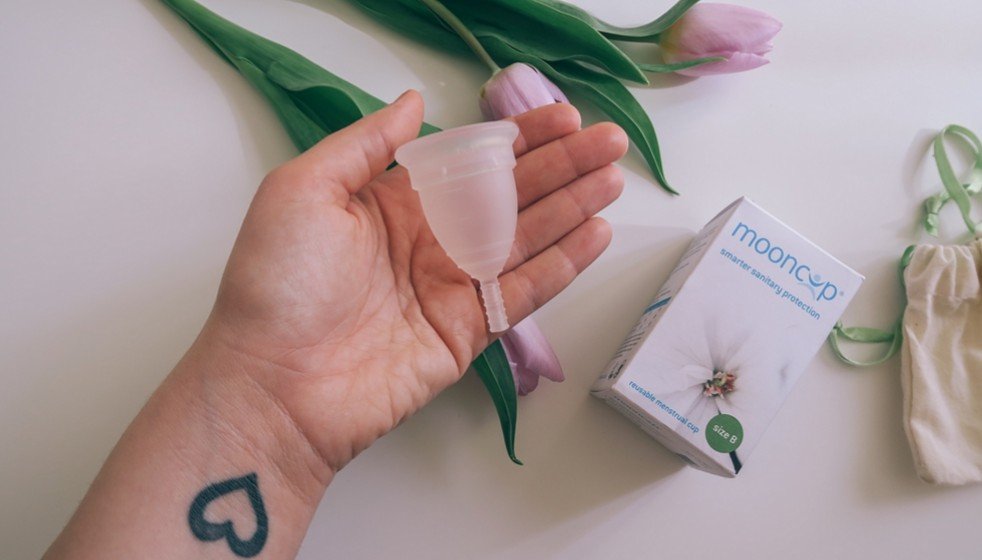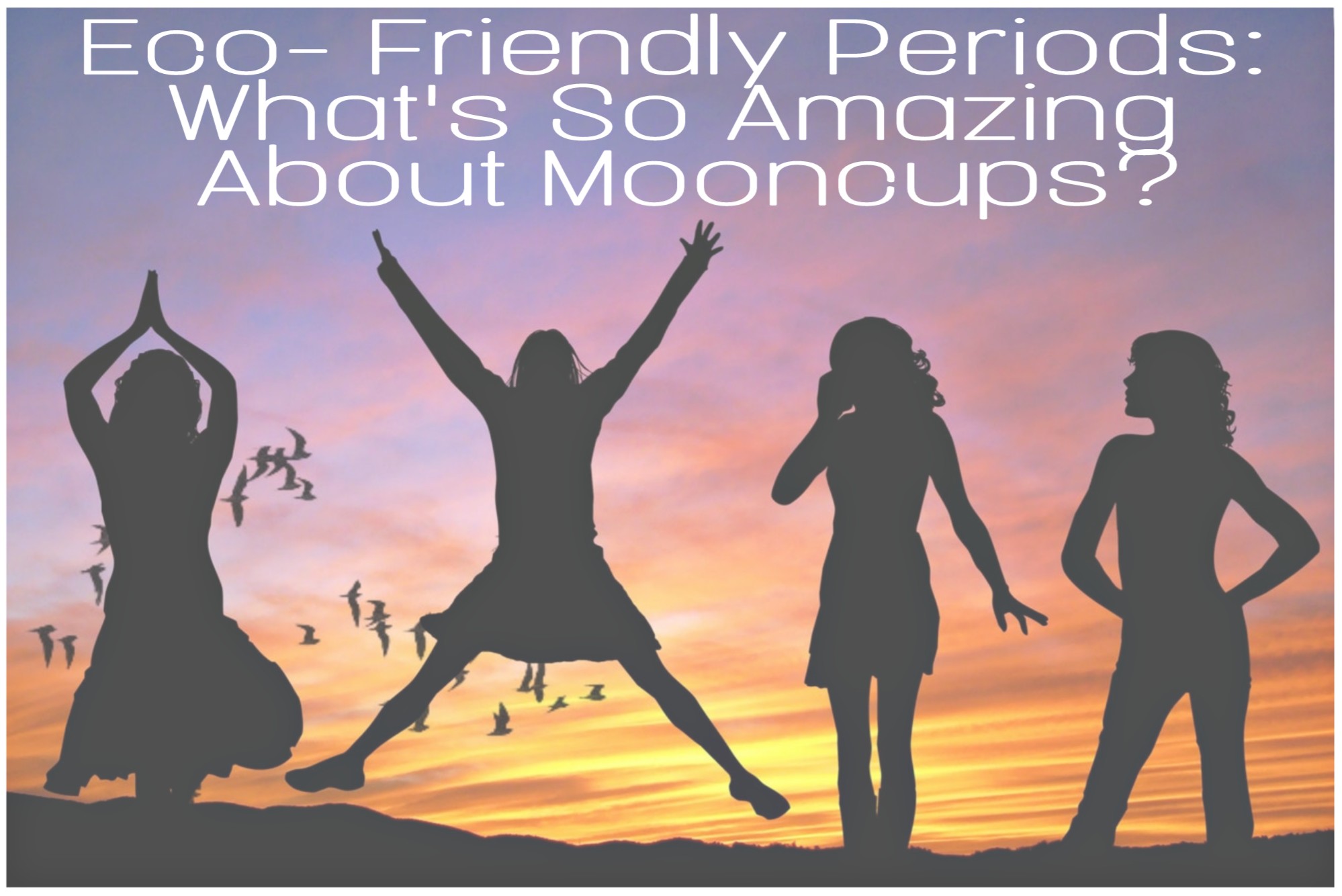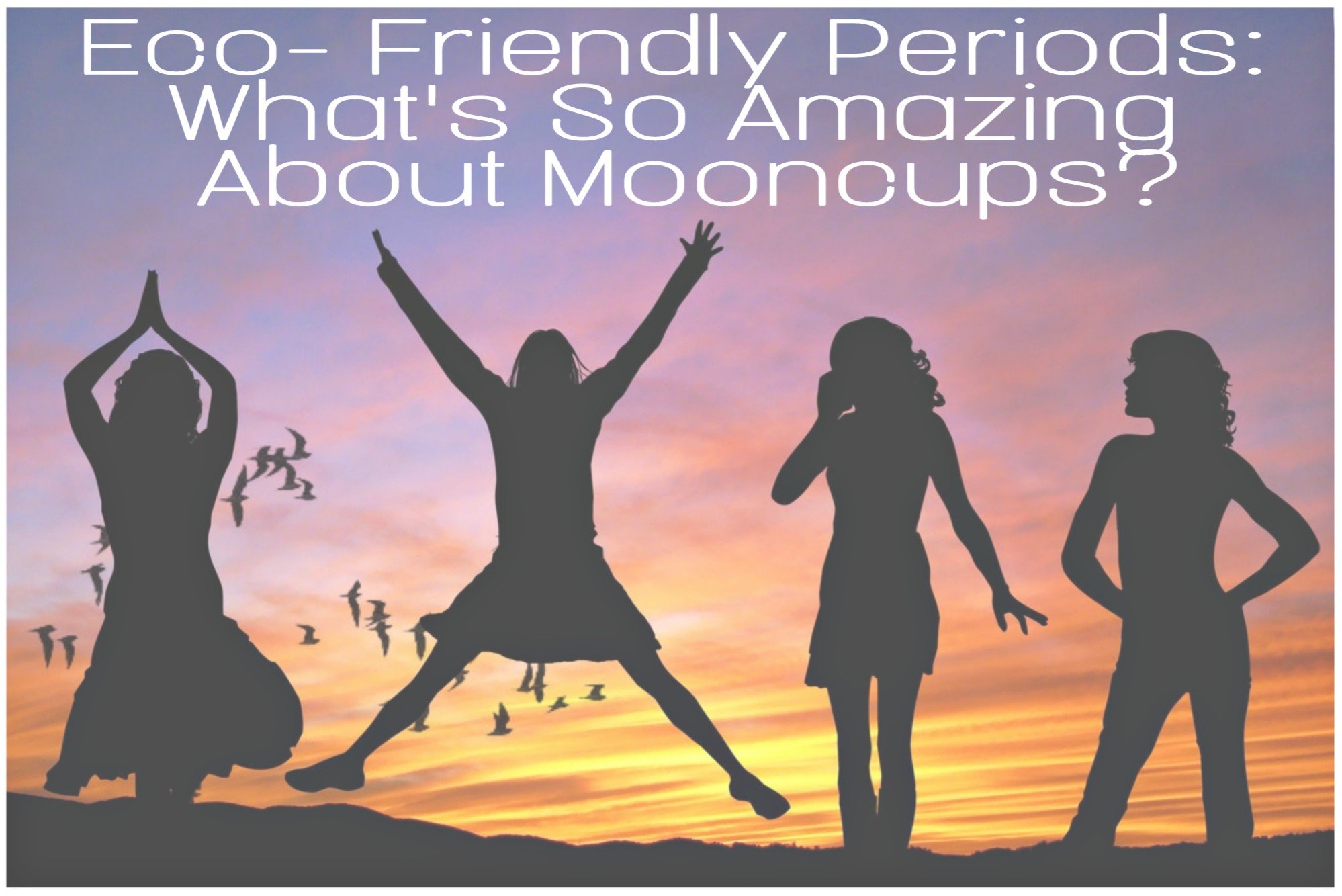Here’s something that I have some serious regret about…
Not knowing about menstrual cups until I was in my early 30’s. I’m not sure how I didn’t figure it out until then. Maybe I wasn’t hanging around the eco-friendly crowd, or maybe it was that menstrual cups weren’t so popular back then. Whatever it was, I’m happy that I did eventually hear about them from a friend of mine. I went out and immediately bought a Diva Cup, and have been using it ever since.
I do regret all those wasted year though. Imagine how much money I could have saved, and how much trash I could have not thrown out?
I’m going to share with you what’s so amazing about menstrual cups, and offer some advice if you’d like to make the switch yourself.
More Money in the Bank at the End of the Month
I’m sure you know this already, but disposable pads and tampons are expensive! I know that I always feel a bit of sticker shock every single time I walk down that aisle at the drugstore. According to the Huffington Post, people spend an average of 13 pounds a month on feminine hygiene products. That’s a lot, especially considering that it’s an expense we incur every single month for around 40 years.
In the UK, tampons and sanitary towels are taxed at a rate of 5%. This has changed a few times during the last 40 years, but it’s currently at the lowest rate possible. It’s still too much.
Although menstrual cups cost around 20 pounds, they can last for years with proper care and cleaning. The best news is that you’ll recoup your costs in only a couple of months, when compared to disposable pads or tampons.
Less Waste Going to the Landfill
Estimates vary, but it’s thought that the average person uses between 11,000 and 16,000 tampons during their lifetime, resulting in 100-200 kg of waste from sanitary products. A portion of this waste is plastic which is not biodegradable. Although tampons and pads are not a big part of the larger waste problem, this is waste that can be avoided by making the switch to a menstrual cup.
Menstrual cups generally last for 5-10 years, so over a lifetime, a person will need only 4-8 of them. This is significantly less waste than thousands of pads and tampons. And there’s more good news—depending on where you live, menstrual cups can often be recycled.
Reduce your Exposure to Chemicals
Pads and tampons often contain trace amounts of pesticides and other harmful chemicals. Manufacturing companies aren’t exactly upfront about what’s in their products, and legislators have been slow to require this. Although there are no long-term studies about what effects these chemicals have, it’s thought that exposure to them might be linked to things as serious as cancer.
I hope that governments will pass legislation that requires companies to disclose what’s in pads or tampons, and/or companies will work to eliminate these harmful things. In the meantime, it makes sense to use a menstrual cup instead.
As long as you get a top-quality cup (avoid the cheap ones from China), it’s made from medical grade silicone that is safe to use inside your body. It will not leak chemicals into your bloodstream and you’ll be able to have a safer period experience.
No Risk of Toxic Shock Syndrome
To date, there has been one reported case of Toxic Shock Syndrome that resulted from using a menstrual cup. With tampons, there are thousands of cases every year. Menstrual cups are not without risks, but it seem that the risk of this very serious condition is far lower than when using tampons.
Ready to Make the Switch?
Are you ready to have a cheaper, safer, and more environmentally friendly period? Then it’s time to consider choosing menstrual cups instead of disposable pads or tampons.
If you live in the UK, an excellent place to start is the MoonCup. It’s a company based in Brighton that makes one of the most popular menstrual cups in the world. MoonCup has been around for years, and people that try the cup really seem to love it.
You can buy the MoonCup directly from the cup for around 20 pounds, and shipping is free in the UK. Check it out here: MoonCup’s Website.
 Image Credit: Dylan and Me
Image Credit: Dylan and Me
Author Bio
Jackie Bolen is a tree-hugging, friend of the Earth who can usually be found on top of a mountain, paddling the rivers, or drinking coffee around Vancouver, Canada. She hopes that one day, a menstrual cup will be found in the hands of every single menstruating person in the world. This has the potential to make it a much better place.
*This is a guest post.



Of course I would find out about these after I no longer need it! Informative article anyway.
I only found it in my 30’s. So many wasted years!
I am intrigued by this! I wish I knew more about this and would love to find out where I can get some where I live in Canada. My cycles have been very bothersome and could really use something like this!
Hey there…I’m the author of this guest post, and I’m actually from Canada. You should be able to find the Diva Cup (it’s Canadian) at most Wal-Marts and big drugstores next to the tampons/pads.
Or, check out this article from my website:
http://reusablemenstrualcup.com/buy-a-menstrual-cup/menstrual-cups-canada/
Wish this had been around when I was going through the monthly routine. So much natural and cleaner.
It is way more natural than using pads or tampons—I’ve learned a lot about my period since making the switch to a menstrual cup.
YES!!! Whenever I try to share eco (and tbh wallet friendly) period options with folks they FREAK OUT! I love that you had so much great info about the menstral cups! They are so much more hygentic than tampons!
It’s weird to me too! I sometimes tell people that I have a website about menstrual cups and they get all shy about it, even women.
Hey there everyone, please let me know if you have any questions or comments and I’d be happy to answer them. I’m the author of this guest post!